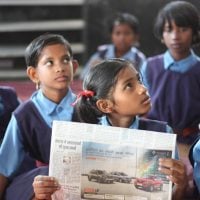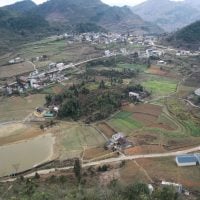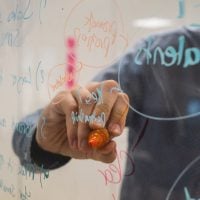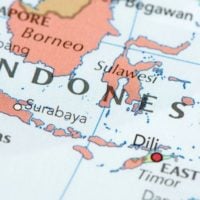Deadline: 2-Nov-22
UN Women is calling for proposals under the project entitled,”Ending Gender Stereotypes in the Classroom” to demonstrate the potential of classroom activity to change regressive gender attitudes, knowledge and perception of children, teachers, staff, and parents.
It aims to look at how and to what extent the activities on gender stereotypes shifts students and teachers’ attitudes and beliefs around restrictive gender norms.
UN Women BCO will implementing a pilot project with funding support from GIZ and United Nations Girls’ Education Initiative (UNGEI) on Ending Gender Stereotypes in the Classroom in primary and secondary schools. The project will use activity/play-based curricula to teach children to question gender stereotypes. This project has been designed to implement with students, teachers, staff and parents of the schools in which the pilots will be conducted. The learning and evidence of the project will be shared with education sectors and gender equality actors in Bangladesh for scaling up the model and inform the future advocacy agenda. Education and gender equality actors in Bangladesh will also benefit from being invited to participate in the learning and knowledge dissemination from the project.
The project will adopt a gender transformative approach to challenge and change inequitable attitudes of students in selected schools, with especial focus on strengthening the leadership and agency of the girls and young women to shift gender stereotypes and the engagement and ownership of the boys and men and in the school set up. The approach will follow two strategies – engaging students in discussion through critical reflection; and sensitizing the teachers on changing attitudes and classroom practices to challenge gender stereotypes and create safe spaces for students to reflect and demonstrate the changes.
Apart from the teachers, staff, SMC members and parents will be involved for creating enabling environment in schools and home. This project will target adolescent students – both girls and boys to question gender stereotypes. It will introduce gender transformative module through adaptation from existing resources to teach both girls and boys (11-15 years) out from selected class participants. Teachers will be capacitated to implement the module to facilitate the students to change their knowledge and attitudes towards progressive gender norms that contribute the break the gender bias. Total 5,000 (sex disaggregated) students, teachers, staff, and parents will be reached through this project who will be direct beneficiaries.
Funding Information
The budget range for this proposal should be between USD 70,000 and USD 80,000.
Geographic Location
The project will be rolled out in secondary schools located in Dhaka division. Priority will be given to those schools that offer education to children from under privilege backgrounds and are registered under formal education system. And should have availability of pupil, teacher, and staff to reach the target of direct beneficiaries. The RP needs to produce the evidence and justification for selecting the schools.
Competencies
- Technical/functional competencies required
- The organization should have been in operation for at least 10 years, with 5 years relevant experience in implementing children and adolescent education and gender equality programmes
- Demonstrated experience in managing and monitoring result-oriented programmes ensuring quality reporting and strong coordination with multiple partners
- The organization should have experience in working with both public and private schools operated under formal education system, key government and CSO actors from education sector in Bangladesh,
- The organization should have appropriate policies and procedures in place to run essential functions of an organization, governance structure, financial management, accounting system, internal financial control
- Other competencies, which while not required, can be an asset for the performance of services
- Previous work experience with UN Agencies, governments, and other national and international institutions with solid experience on promoting gender equality, women and girls’ rights and empowerment agendas; priority will be given to women- led organizations
For more information, visit https://asiapacific.unwomen.org/en/programme-implementation/2022/10/unw-ap-bgd-cfp-2022-007-ending-gender-stereotypes-in-the-classroom









































